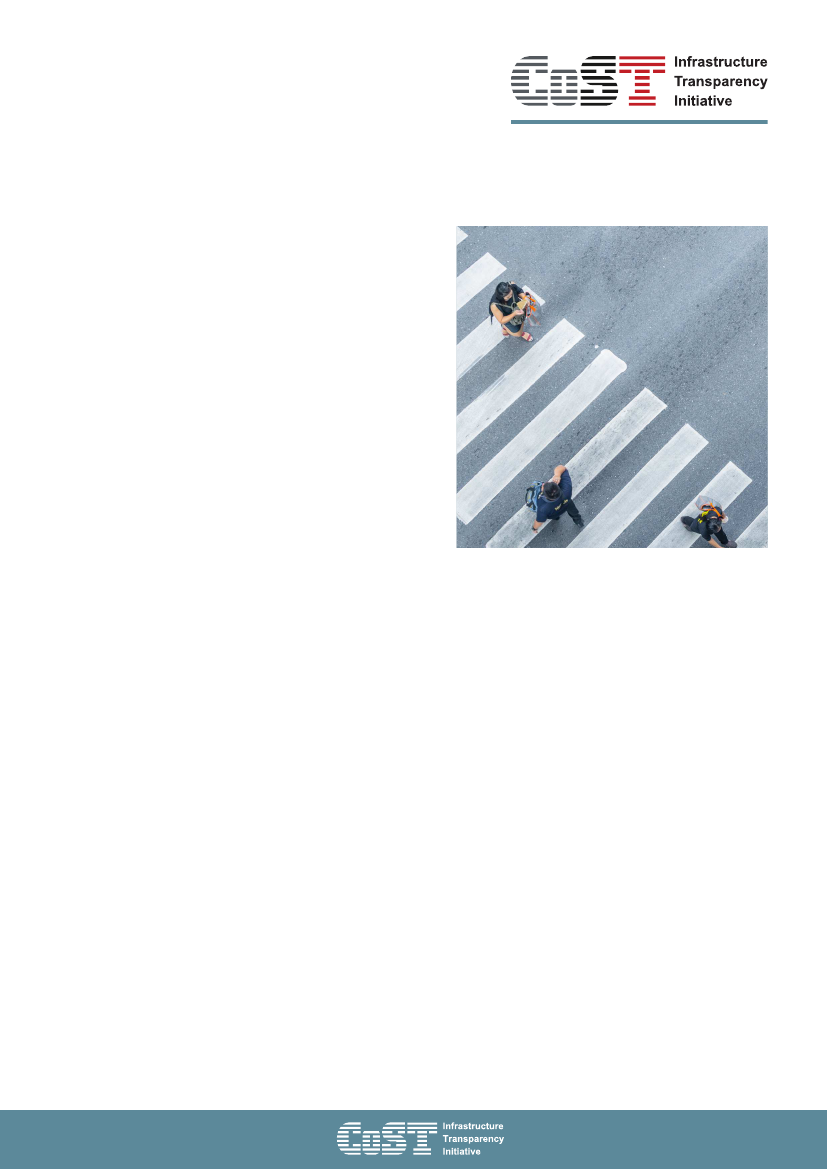
The need for CoST:
Strengthening economies
and improving lives
What is CoST?
CoST – the Infrastructure Transparency Initiative
(CoST) is the
leading global initiative improving transparency, participation
and accountability in infrastructure.
CoST works with government, private sector and civil society
to promote the disclosure, validation and interpretation of
data from infrastructure projects. This helps to inform and
empower citizens and enables them to hold decision-makers
to account.
In addition to working with CoST members at the national
level, CoST works with a range of international organisations –
such as Open Contracting Partnership, International Federation
of Consulting Engineers (FIDIC), World Bank, and Civic-20 (C20) -
pursuing common goals to better the delivery of infrastructure.
Pedestrians walk to work.
Why do we need CoST?
It is estimated that between 10% and 30% of investment in infrastructure is lost due to corruption,
mismanagement and inefficiency.
Recent statistics
put wastage due to inefficiency at
53% (in low income), 34%
(in emerging) and 15% (in advanced)
economies. Furthermore, estimates prior to Covid-19, state that by 2040 the
world will face a US $15 trillion gap between projected investment and the amount needed to provide adequate
infrastructure.
Our experience indicates that increasing infrastructure transparency, participation, and accountability helps to
drive reforms that reduce mismanagement, inefficiency and corruption. Applying this approach results in cost
savings of magnitude, helping to meet the 2040 gap and deliver better-quality infrastructure for millions.
CoST creates better value for:
■
Governments because it demonstrates how public money is spent, identifies potential efficiency savings and
complements reforms in the management of public finances and the procurement of infrastructure.
■
The private sector because it ensures a level playing field and reduces the costs and risks of doing business.
■
Communities because it ensures cost-effective delivery of improved infrastructure that changes lives.
How does it work?
CoST provides a set of principles and guidance on increasing transparency, accountability and participation in
public infrastructure. Any national or sub-national government, megaproject or procuring entity can apply to
join
CoST
as a Member during a competitive process or as an Affiliate Member at any time. Our
members span four
continents worldwide,
representing a range of economies and contexts.
1